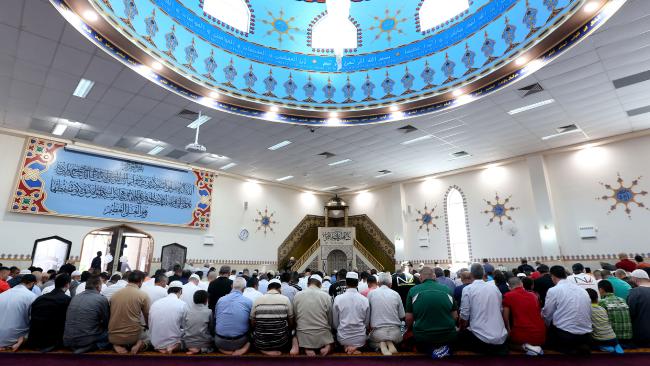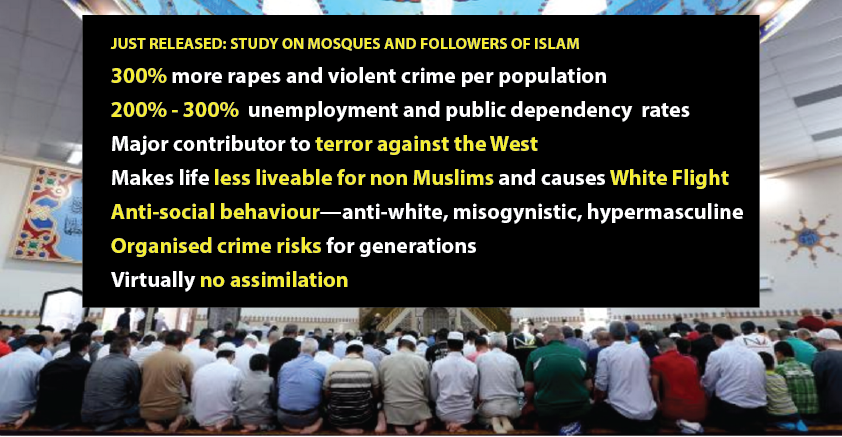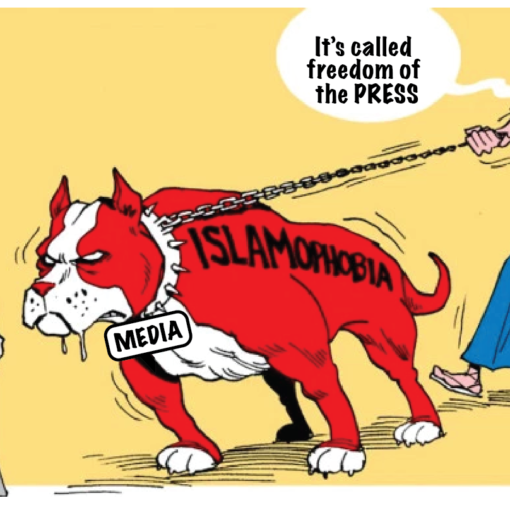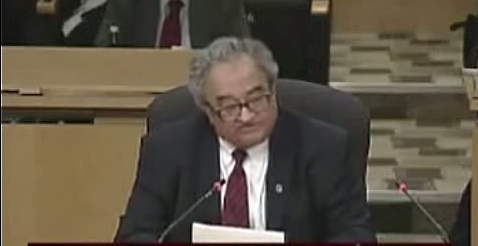
We have gone to our Council’s Planning Departments with our concerns to no avail. Even our Courts have asked for the Social Impact studies that relate specifically to Australia. Now we can go to them both with the evidence that our concerns about Mosques in Australia are warranted. Finally a detailed non-political study has been done by a recognised academic on the effects of Mosques in Australia. The Study is called “A General Social Impact Assessment of Mosques in Australian Neighbourhoods.” by Dr Frank Salter, BA (Hons), M Phil, Ph D.
In this Paper, Salter investigated the social impact of Muslims and Mosques on Australian communities. He had two proposals he wanted to explore. That:
- People who defined themselves by their religion create a loss of trust and social cohesion.
- Muslims cause additional negative social impacts.
Seven studies conducted between 2006 and 2013 showed that Muslims outweighed all other religious followers in creating distrust. When focussing on Muslims in particular Salter found in areas of large Muslim populations, the disapproval rate for Muslims is five times than the disapproval rate for Buddhists (in every survey since 2010). The disapproval rate towards the religion Islam was even stronger.
Other studies included in this report highlighted disapproval rates of 44 per cent against Muslims to 70 per cent against the influence of Islam
The Study also found:
1 Terrorism is the most high profile impact of Muslims. Islamic communities are the major source of terror directed at the West.
2. Muslims are imprisoned three times their proportion of population.
3. Muslim unemployment rate and public dependency rate is two to three times the Australian averages.
4. Lack of affiliation (loyalty to a country by military volunteering)— Five times more Muslims volunteered for jihad forces in the Middle East than are presently serving in the Australian Armed Forces.
5. Muslims are a major contributor to terrorism and organised crime but note that it is low for Indonesian Muslims (5.9%) compared very high for Middle Eastern in particular those from Lebanon.
6. Muslims anti social behaviour includes anti white assaults and “hyper-masculine and misogynistic culture among young men.
7. Muslims have negative social impacts on neighbourhoods
8. Muslims weakens community identity and cohesion.
9. Muslims reduce trust and sense of public safety.
10. Islamic populations and mosques increase the risk of organised crime and terrorism for generations.
11. Muslims and Mosques create a large loss of amenity to local residents
12. As Muslim numbers grow an area become less liveable for non-Muslims.
13. Mosques contribute to the breakdown in the social fabric of existing communities by attracting more Muslims and by reproducing Islamic doctrines and identity which maintain the negative behaviour.
14. Muslims are slow to assimilate because they marry within their group. (Islam forbids Muslim women to marry outside of Islam)
15. Diverse communities with a majority of Muslims are most dysfunctional and have the highest crime rate. They also have the least amount of volunteering—volunteering being an indicator of cultural cohesion.
The implications for policy that come out of this report recommends (1) that social impact studies should accompany any planning application to build mosques and that (2) Councils need to be empowered to preserve the cultural and religious identities of their communities.
The Study was also very damning of previous social impact reports done by Australian left wing academics who only looked at the social impacts from the Muslim perspective and not the negative effect a mosque would have on the broader Australian community. Salter recommended that politics needs to be removed from these kinds of Social Impact studies as this would allow planning groups to make better decisions for their communities.
People often use religion and its community as a stepping stone to assimilation in a new country. But in the case of Islam, the control of Mosques and Islamic doctrine made assimilation almost impossible for Muslim migrants—and slow down assimilation into local populations.
Salter finishes this detailed study by underscoring that the social impact of Islam is essentially “a clash of civilisations”.
His website is called SocialTechnologies.com.au
NOTE: This is an important study because it is perhaps the first social impact study done without a left wing multicultural bias. It proves the social cost of Muslims coming into our community. There will be an increase in rape and violent crime. There will be an increase in assaults, harassment that are anti-white and demeaning of women in its nature. There will only be limited assimilation. There will be an increase in terror. The quality of life will decrease for non-Muslims. There will be “white flight” and a lowering of house prices. Mosques will attract more of the same anti-social behaviour as they build up more Muslims in the community surrounding a mosque (2 percent of Muslims in the general population but 11% around a mosque). Mosques are the stronghold for a clash of Civilisations that will be felt for generations. Councils need to consider this impact before approving any mosques in their community.
Follow this link to Download the Report:

Top recommendations
- Casino Utan Spelpaus
- Casino Non Aams
- Crypto Casino
- Casino Non Aams Sicuri
- Casino Sites Not On Gamstop
- Migliori Casino Online Non Aams
- UK Casino Not On Gamstop
- Gambling Sites Not On Gamstop
- Slots Not On Gamstop
- Non Gamstop Casino Sites UK
- Sites Not On Gamstop
- Online Casinos
- Not On Gamstop Casinos
- Non Gamstop Casinos UK
- オンラインカジノランキング
- Gambling Sites Not On Gamstop
- Casino Online Non Aams
- UK Online Casinos Not On Gamstop
- Melhores Cassinos Online 2025
- Non Gamstop Casinos UK
- Gambling Sites Not On Gamstop
- Online Casino
- Casino Not On Gamstop
- Non Gamstop Casino Sites UK
- Best Non Gamstop Casino
- Crypto Casino
- Casino En Ligne
- Tous Les Sites De Paris Sportifs Belgique
- Tous Les Sites De Paris Sportifs Belgique
- Meilleur Site Casino En Ligne Belgique
- Casino Online Non Aams
- Casino En Ligne Fiable
- Casino En Ligne France
- Nouveau Casino En Ligne France
- Migliori Casino Senza Verifica
- Meilleur Casino En Ligne France
- Casino Fiable En Ligne
- Site De Casino En Ligne
- 토토사이트
- Migliori Casino Online Italia



7 thoughts on “AUSTRALIAN STUDY: Mosques Impact Local Communities”
Respectfully, you seem to have misread the article. It says, “(Islam forbids Muslim women to marry outside of Islam)”
Also, by your very admittance, non-Muslim women marrying a Muslim man must convert.
I find it troubling when people cherry pick out of an entire sophisticated study to try and fine a point to argue and thereby ignore the significance of the rest of the article. It is even more troubling when they mis-read the information provided.
As for love, love is an emotion and anyone can fall in love with no rational reason why. Love has absolutely nothing to do with this article or the concerns it raises.
I do not think Islam forbids marrying non-Muslim women.In fact,that’s how religion spreads “peacefully” for them.The women invariably convert to Islam.Just read reports on thousands of British and American citizens converting to Islam,most of them being women.AND most of them for love.
Imams sprew hatred…the WH and MSM pimps it all
https://www.youtube.com/watch?v=tCAffMSWSzY
If they are so ‘offended’
why not leave?..
I would gladly show them the door marked EXIT
My grandmother came in steerage age 17
boarded a train in NYC and crossed country to Portland
got a job as an upstairs maid while she studied English and attended
citizenship classes…and she told me when I was a child
“If they will not live with our values then let them leave..nobody holding
them prisoner”
I am as INTOLERANT as she was…
Australia is in peril no less than countries such as the US and UK and Germany in Europe.
The Islamic contagion will kill this nation as it killing Western countries country by country.
Our successive governments and current mainstream political parties have to be removed from having political power for they all now serve the UN and Islamic interests.
Where ever they wish to build a mosque just bury a pig or to on the block. That will stop it
Finally a study which puts into words exactly what the majority of non-moslem residents in Australia know and understand. Hopefully this study can be well used by anti-mosque campaigners, and received just as well by the
approval authority. The insidious creep of islam into urban Australia is disintegrating social cohesion, creating massive distrust and discomfort. Hopefully it will also provide influence over those in approval authorities to no longer fear labels of islamophobia, a fear which appears common in mosques etc gaining approval.
More prattle, more talk, more discussion, more acknowledgement and bugger all will be done. It will be stifled by those in office and probably wont see the day of daylight..